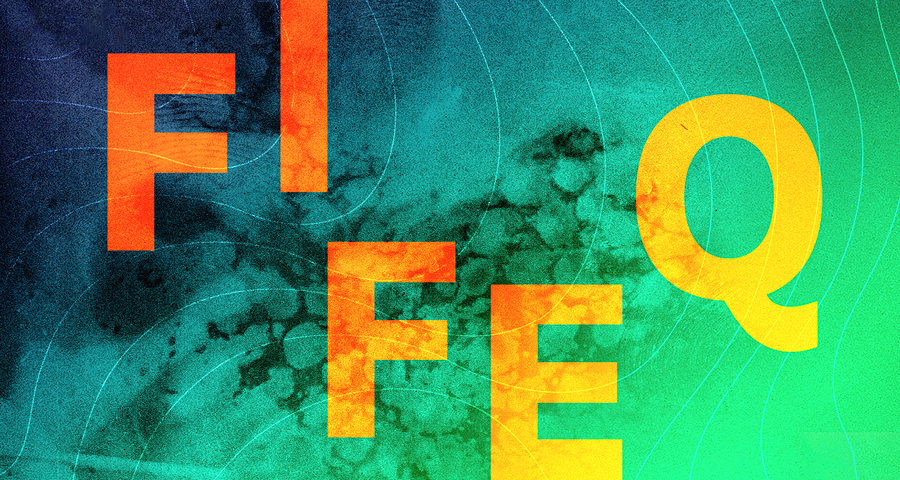FIFEQ-MTL
May 9 | 6 p.m. to 8 p.m.
Film screenings: Indigenous program
Free activity | Space is limited, no reservations
As part of the International Festival of Ethnographic Films of Quebec, City of Montreal (FIFEQ-MTL), attend KISHKISHI program, a carefully curated selection of indigenous films, by Metis filmmaker Jack Belhumeur, in collaboration with Wapikoni Mobile and the Museum.
The screening will be followed by a discussion with Jack Belhumeur and Charlotte Gauthier-Nolett, director of Abaznoda (Wapikoni Mobile) and Terry Jones.
KISHKISHI
Rooted in the Michif language, “KISHKISHI” translates to “Remember,” serving as a poignant reminder of the importance of preserving indigenous cultures and memories. KISHKISHI ventures beyond conventional narratives to explore the complexities of representation and memory. While most selected films embody the theme of remembrance through personal and communal narratives, this program also prompts viewers to reflect on the nuances of representation – what is portrayed, what is omitted, and the power dynamics inherent in the act of representation itself.
In crafting this program, Jack Belhumeur drawn inspiration from the diverse practices that serve as vessels for memory. Each film in KISHKISHI illuminates these practices, showcasing how they serve as conduits for storytelling and cultural preservation. From the preparation of traditional foods to the intricate art forms passed down through generations, these films celebrate the richness of indigenous heritage and the resilience of its people.
Through KISHKISHI, each film serves as a testament to the increasing representation of indigenous voices in cinema, amplifying narratives that have long been overlooked or marginalized. Join us as we delve into the rich tapestry of indigenous cultures, guided by the spirit of KISHKISHI – a call to remember, reflect, and rejoice in the enduring legacy of indigenous peoples worldwide.
Information
- Free activity, in French and English, presented on Thursday, May 9, 2024 at 6 p.m. to 8 p.m.
Q&A with the public in French and English. - Duration: 2 h
- Location: J. Armand Bombardier Theater
- Places are limited, no reservation required.
FIFEQ-MTL
The International Festival of Ethnographic Films of Quebec, City of Montreal (FIFEQ-MTL) was founded in 2003 by visual anthropology students at Université de Montréal. A free and unique festival, it is one of the rare platforms to screen and promote ethnographic cinema in Canada.
Thanks to the generous involvement of hundreds of students from Concordia University, McGill University and Université de Montréal and of non-student professionals, the Festival has brought together thousands of viewers, all passionate about cinema and visual anthropology or simply curious about discovering hidden gems of the ethnographic repertoire.
Program
L’Innu du futur
Stéphane Nepton transports us into his world, sharing with us the duality of his identity as an urban native. The film is an ode to the power of the land, its influence on our soul, and how it can guide our lives. The compelling narration offers a unique perspective on the relationship between man and nature, and reminds us of the importance of protecting and celebrating the land around us.
L’Innu du futur, 2021, 5 minutes, Canada, Stéphane Nepton. Original version in French.
Soup for my brother
In this strikingly poetic documentary about memory, loss and brotherly love, we find Jimmy, guided by the memory and words of his grandfather, preparing a soup for his beloved brother Danny, who passed away one year ago.
Soup for my brother, 2016, 10 minutes, Nation Seneca,Terry Jones. Original version originale in English with English subtitles.
Abaznoda
Abaznoda tells the story of Charlotte, a young Abenaki artist who makes baskets from black ash. The legacy that she carries of all the generations that preceded her drives her to excel in her passion for basket weaving.
Abaznoda, 2023, 10 minutes, Canada, Charlotte Gauthier-Nolett. Original version in French.
Presented in collaboration with Wapikoni mobile.
Elder’s Room
In a lodge at Kainai Nation’s High School, Blood Tribe Elders, youth, and counselors confront the ongoing trauma of the Canadian Residential School system and work to build a future informed by their cultural teachings.
Elder’s Room, 2020, 23 minutes, Canada, Michael B MacDonald and Shirley Steinberg. Original version in English.
Lana Gets Her Talk
An insight into Cree artist Lana Whiskeyjack’s process as she creates a mixed-media sculpture of a pained face, representing her uncle. Lana calls the piece Lost My Talk. This brief study of an artist and her work helps us come to some understanding of the trauma experienced by Canada’s Indigenous people in the Indian Residential School system, of its enduring effects on the children of survivors of the IRS. A story of resilience, Lana’s journey speaks of the power of Indigenous “ways of being” in our time.
Lana Gets her talk, 2017, 37 minutes, Canada, Beth Wishart MacKenzie. Original version in English.
Be an insider!
Subscribe to our newsletter to get the inside scoop on upcoming exhibitions and cultural events.
Subscribe now









